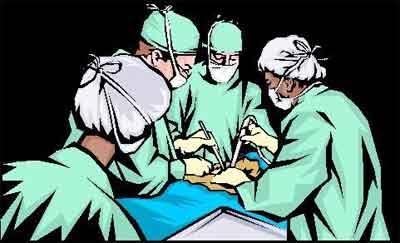- Home
- Editorial
- News
- Practice Guidelines
- Anesthesiology Guidelines
- Cancer Guidelines
- Cardiac Sciences Guidelines
- Critical Care Guidelines
- Dentistry Guidelines
- Dermatology Guidelines
- Diabetes and Endo Guidelines
- Diagnostics Guidelines
- ENT Guidelines
- Featured Practice Guidelines
- Gastroenterology Guidelines
- Geriatrics Guidelines
- Medicine Guidelines
- Nephrology Guidelines
- Neurosciences Guidelines
- Obs and Gynae Guidelines
- Ophthalmology Guidelines
- Orthopaedics Guidelines
- Paediatrics Guidelines
- Psychiatry Guidelines
- Pulmonology Guidelines
- Radiology Guidelines
- Surgery Guidelines
- Urology Guidelines
Patients operated on at night twice as likely to die: World Federation of Society of Anaethesiologists

New research presented at this year's World Congress of Anaesthesiologists (WCA) in Hong Kong (28 Aug - 2 Sept) shows that patients who have surgery during the night are twice as likely to die as patients operated on during regular working hours. Patients operated on later in the working day or in the early evening also have a higher mortality risk, concludes the study by Dr Michael Tessler, Associate Professor of Anesthesiology, and Dr Ning Nan Wang, Chief Resident, Department of Anesthesia at McGill University Health Centre, Montreal, Canada, and colleagues.
Postoperative mortality risk factors have been previously extensively studied. Previously identified risk factors include the patient age (1,2); the American Society of Anaesthesiologists (ASA) overall risk score (2) and emergency status (1,2). Research studies analysing the time of surgery and postoperative mortality have had ambiguous results. The aim of this study was to investigate relationship between postoperative mortality and the time of the day of surgery at a Canadian hospital the Jewish General Hospital in Montreal, Canada.
After obtaining institutional ethics review board approval, a retrospective review of 30 day postoperative in hospital mortality was carried out at the hospital, which is also a teaching hospital. The study evaluated all surgical procedures for the past 5 years, starting from April 1, 2010 to March 31, 2015. A database was constructed collecting variables about surgical interventions. All elective and emergent surgical cases were included except ophthalmic and local anaesthesia cases (since the vast majority of ophthalmic cases are performed under local rather than general anesthesia, and not in the regular operating theatre).
The working day was divided into three time blocks
Daytime 07:30-15:29
Evening 15:30-23:29
night time 23:30-07:29.
The start time of the anaesthetic recorded by the circulating nurse was used to determine in which time block the operation began.
There were 41,716 elective and emergency surgeries performed on 33,942 patients in 40,044 hospitalizations. Of these, 10,480 were emergency procedures; there were 3,445; 4,951; and 2,084 emergency procedures with anaesthesia starting between day, evening and night respectively. There were 226, 97 and 29 deaths of all cases during day, evening and night surgery (79, 95, 29 mortalities for emergency surgery in the same time periods) respectively.
The researchers found that after adjustment for age and ASA scores, the patients operated in the night were 2.17 times more likely to die than those operating on during regular daytime working hours, and patients operated on in the late day were 1.43 times more likely to die than those operated on during regular daytime working hours.
The researchers say: "This study demonstrates that late day and night emergency surgery are associated with higher mortality when factoring in ASA score and patient age. Postoperative 30-day in-hospital mortality rate should include start time of anaesthesia, along with other known variables, as a risk factor."
They say that theoretical possible causes include, but are not limited to, provider fatigue during anaesthesia and surgery, overnight hospital staffing issues, delays in treatment (for example how many operating rooms are available), or the patient being too sick to be postponed prior to treatment. The authors say: "Analysis of each of these possibilities is important to understand the reasons for this increased mortality and to direct any remedial action in an effort to reduce postoperative mortality."

Disclaimer: This site is primarily intended for healthcare professionals. Any content/information on this website does not replace the advice of medical and/or health professionals and should not be construed as medical/diagnostic advice/endorsement or prescription. Use of this site is subject to our terms of use, privacy policy, advertisement policy. © 2020 Minerva Medical Treatment Pvt Ltd